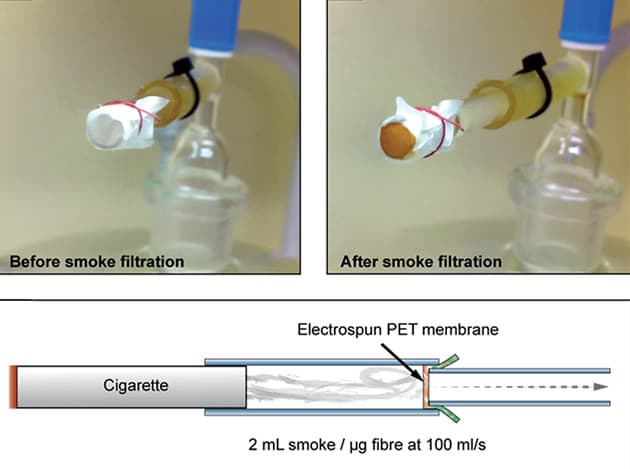Up In Smoke…
Here at Plastic Expert, we love to talk about various topics in the recycling world, especially the sciency* stuff! So when we heard through the wire that a team of scientists in Sweden and America had developed a way of involving recycled plastic in cigarettes, we wanted to know more.

The researchers have developed an innovative method of using the commonly recycled plastic ‘Polyethylene Terephthalate‘ (PET) in membranes for cigarette filters. The production of these filters would involve dissolving PET in trifluoroacetic acid and dichloromethane, which is then made into fibre mats and then filters.
You might expect this process to have been done using virgin PET, which is considerably more expensive and energy consuming. But whilst PET is commonly recycled into fleece, containers, films and other low-grade objects, it is becoming increasingly more viable and useful to apply the recycled plastic to higher quality tasks like protective clothing and now, cigarette filtration.

The University of Illinois teamed up with the KTH Royal Institute of Technology in Stockholm to work on this concept. They found that the cigarette filters with a recycled plastic PET membrane absorb up to 20 times more cigarette smoke than classic filters tips. It is a common misconception that cigarette filters are made from cotton, when in fact they are made from a plastic called cellulose acetate, which when fibrous and tightly packed, looks akin to cotton.
The research has been praised not only for addressing plastic waste and finding applications for recycled plastic, but for tackling the problem of passive smoking. Richard Andersson, a member of the research team, said he would like to ‘investigate if you can tune the properties of the membranes by altering the solvents, spinning conditions or maybe the temperature’.
He adds that perhaps because of PET’s resistance to chemical solvents ‘maybe there are other ways of doing this that are more environmentally friendly’.
Congratulations to the whole team on this fantastic breakthrough.
*Sciency, surprisingly is actually a real word; it entered the Oxford dictionary in May 2014.
(Source)








